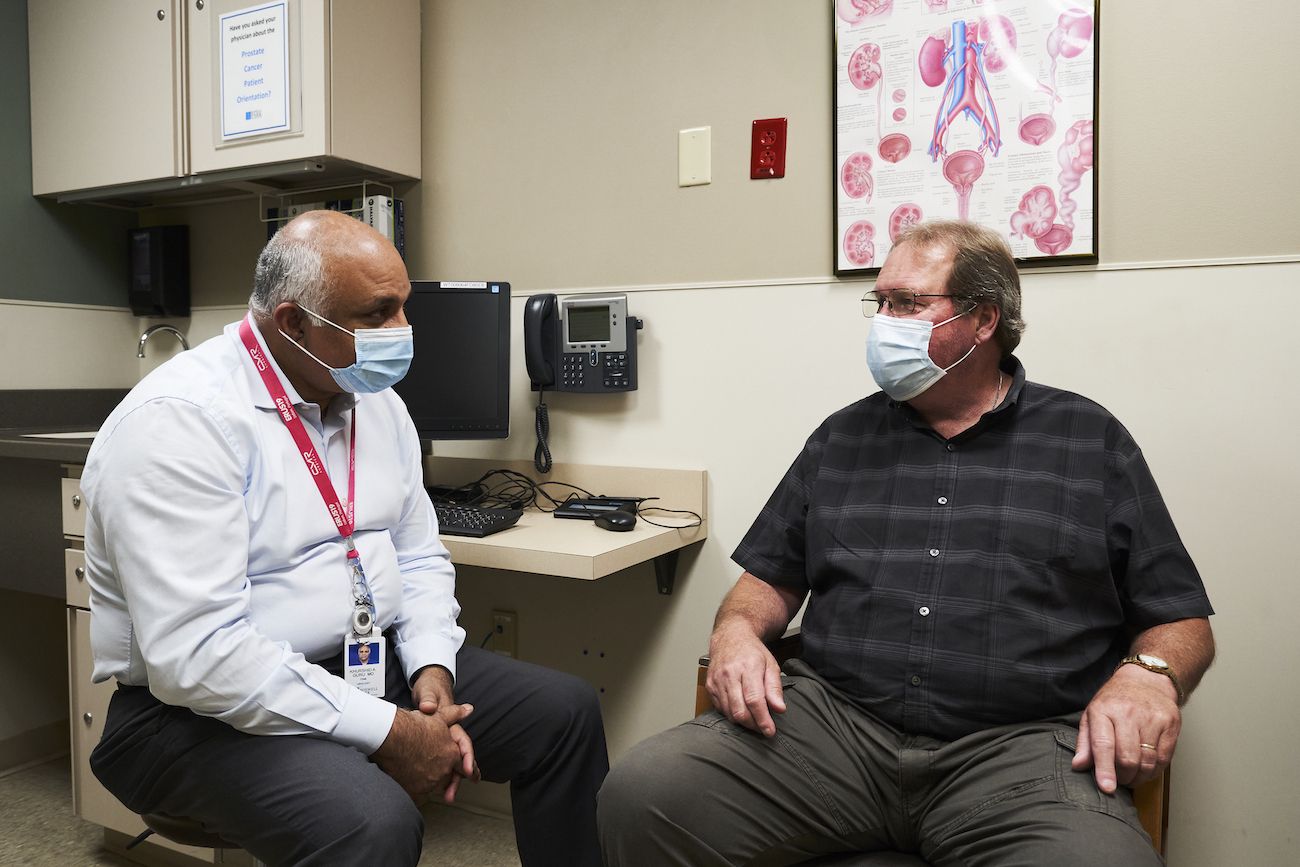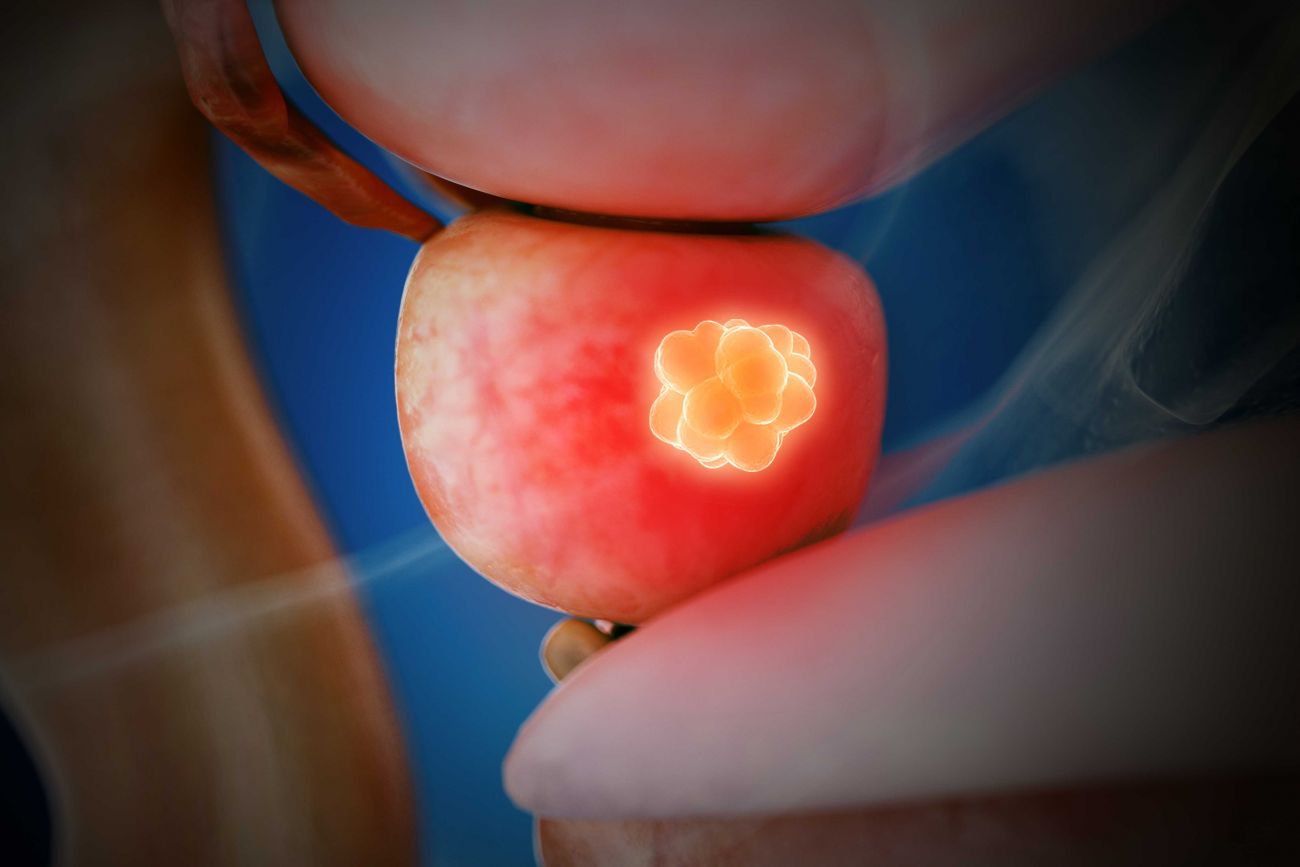A risk factor is anything that increases your risk for developing a condition or disease. Risk factors for prostate cancer include:
- Age. Your risk of getting prostate cancer increases as you get older. The average age at diagnosis is 67, and most men 99% of them are over age 50. Family medical history. In about 5-10% of all cases, prostate cancer is caused by a gene mutation (abnormal gene) that is inherited, or passed along from generation to generation. If members of your family have had prostate, breast, ovarian, colon and/or pancreatic cancer — especially close relatives, such as a father or mother, brothers or sisters — you may be at higher risk for prostate cancer.
If more than one of your close relatives (father, brother or son) developed prostate cancer before age 60 or 65, you and your physician should discuss whether you should begin early detection testing for prostate cancer beginning at age 40. Learn more about how your family history may impact your cancer risk and whether a genetic consultation is right for you.
- Race. African-American cisgender men have a higher risk than white cisgender men of being diagnosed with prostate cancer and are two-times more likely to die from the disease. African-American men should speak with their physicians about the pros and cons of early-detection testing for prostate cancer beginning at age 40.
- Exposure to Agent Orange. Vietnam veterans who were exposed to Agent Orange during military service are at increased risk of developing prostate cancer. Agent Orange also decreases the chance of a cure.
- Obesity. Being overweight has been shown to increase the risk of prostate cancer.
- An unhealthy diet. Eating foods high in fat, or red meat that is charred (burned/blackened), and not eating enough fruits and vegetables, raises the risk of prostate cancer.
Genetic testing
Concerned about your cancer risk due to your personal or family history? A genetic consultation can give you the answers you need. We offer expert guidance and monitoring, preventive options and a unique opportunity to take charge of your health.

